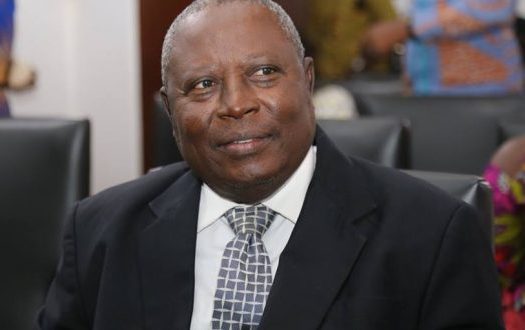I have read the judgment of the Supreme Court in the case I brought challenging the constitutionality of the appointment of Martin Amidu as the Special Prosecutor on grounds of age.
For those who have either not followed the case or read the judgment as issued by the Supreme Court, the issue before the Court was whether a 66-year old person can be offered an appointment in the Public Services of Ghana?
And posed this question to the Supreme Court because our Constitution, the fundamental law of the land, provides for a mandatory retirement age of 60 years and the possibility of a post-retirement contract for a maximum period of 5 years.
In other words, a person retiring from the a Public Service Office created under the Chapter of the Constitution dealing with the Public Services of Ghana, may be offered and can accept an appointment to continue to serve for a maximum period of 5 years after retirement and thereafter the Constitution is silent.
I will be writing a more extensive analysis of the extremely disappointing judgment of the Court in a later installment on this page.
However, the judgment of the majority of the Court, by Amegatcher JSC, purported to rely on the case of Yovuyibor v. Attorney-General [1993-94] 2 GLR 343 as authority for the decision, especially as it related to the categories of employees in the public services.
In particular, the majority relied on the dicta of Amua-Sekyi JSC in that case regarding the classification of employees in the public service.
I must say with all due respect to their Lordships that, the dicta of Amua-Sekyi in relation to the classes of employees in the public services, were at best obita dicta as they had no direct bearing on the issue that was before the Court in that case.
The issue was whether Police officers who attained the retiring age of 55 two weeks upon the coming into force of the Constitution in 1992, were entitled to the enhanced retirement age of 60 under article 199 clause 1 of the Constitution or should be made to retire at age 55 under the then Police Service Act, 1970 (Act 350).
The Supreme Court upheld their case for an enhanced retirement age of 60 years and declared the provision of the Police Service Act, 1970 (Act 350) null and void and of no effect as it contravened article 199(1) of the Constitution, 1992.
As I have stated above, I will be writing a more extensive piece on the judgment but for now I wish to leave you with the words of Ampiah JSC in his concurring judgment:
"The Police Service is part of the public services of Ghana-- vide article 190(1) of the Constitution, 1992. Members of the service are therefore public officers.
In so far as the Constitution, 1992, the supreme law of the land, provides that "a public officer shall, except as otherwise provided in this Constitution, retire from the public service on attaining the age of sixty years (vide article 199(1) of the Constitution, 1992), and there being no other provision in the Constitution, 1992 and section 8(1) and (2) of the transitional provisions of the Constitution, 1992 to my mind not being relevant to the particulars of this case, any law which states to the contrary is inconsistent with the Constitution, 1992.
Consequently, to the extent of the inconsistency, the Police Service Act, 1970 (Act 350) as amended...is null and void. A police officer as a public officer shall compulsorily retire at the age of 60 years and otherwise." [@ page 353 of the judgment].
Though this case, contrary to the claim of the majority of their Lordships, is not on all fours with the case I brought, make your own judgment whether it supports the conclusion reached by their Lordships in the majority.
I shall be back.
Latest Stories
-
“Elements within NPP worked against me for supporting ‘Ken must go'” – Cynthia Morrison
51 minutes -
IMF Boss commends finance minister for strong commitment to economic reform
1 hour -
Cynthia Morrison advises Ghanaian women to diversify their skills to build wealth
1 hour -
UK deports 43 immigration offenders to Ghana and Nigeria
2 hours -
Piwak Natural Health urges Akosombo victims to rebuild with new donation
2 hours -
Ghana’s Para athlete Gilbert Ampiah wins bronze at Marrakech Grand Prix 2025
2 hours -
6 dead in Adansi Dompoase crash involving VIP bus and sprinter
3 hours -
Saturday’s heavy rainstorm caused outages within our network – ECG
3 hours -
Police arrest 3 over gold robbery at Wassa Afransie
4 hours -
Against all odds: Zinabu Issah clinches silver for Ghana at WPA Marrakech 2025
5 hours -
ASFC 2025: Ghana girls complete host-and-win mission after beating Uganda
5 hours -
NPC President congratulates new GOC Executives
5 hours -
Stonebwoy displays maturity amid Aisha Modi’s attacks: a masterclass in brand integrity and respect
5 hours -
Afro-Arab Group CEO commends Kwahu Business Forum
6 hours -
CAF President Motsepe vows action against rising stadium violence
6 hours

